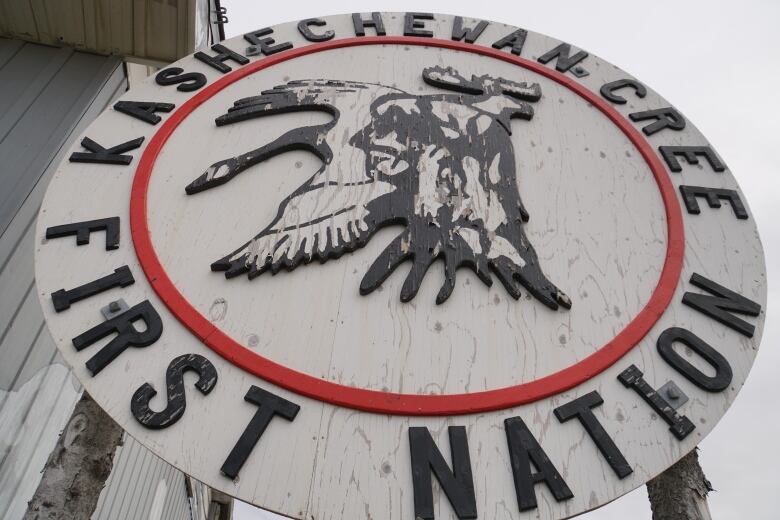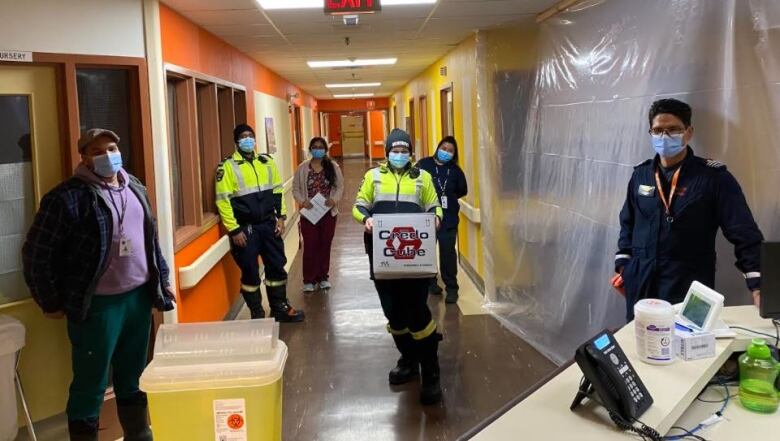COVID on the coast: outbreak in isolated communities comes months after most were vaccinated on James Bay
Remote First Nations have seen only sporadic COVID activity during the first 15 months of the pandemic

After a year of being largely isolated from the virus, COVID-19 has hit the James Bay Coast.
The number of cases has suddenly shot up over 170 and many of those getting sick are children.
"We're praying every night for the people that has it. And hopefully that will die down soon," says Kashechewan Chief Leo Friday, who has seen COVID cases in his community jump up to 59 in just a few days.
He says he isn't getting detailed information from public health officials about who is infected, but with most adults in the First Nation of about 1,500 vaccinated months ago, Friday says many of those testing positive are children.
That includes one boy who was so out of breath that he had to be airlifted to a hospital in southern Ontario.
"Mostly children and I don't know how many adults," says Friday.
"It's really hard to deal with the problem when we don't know who has it."
Since COVID-19 first came to northern Ontario in March 2020, there has been fear of it coming to the James Bay Coast, where the chronic housing shortage means there are often 15 people crowded into one small house.

Friday says in Kashechewanthat makes it difficult to quarantine COVID patients from their extended families. He says earlier in the pandemic there was an isolation centre set up in the high school, but the federal funding for that ran out long ago.
"It's really sad and it's really scary if one person gets it," says Friday, who is in talks with the federal government to get funding to set up tent framesfor COVID patients or maybe call in the military to help out.
Indigenous Services Canada says it has provided the Mushkegowuk Council, which is made up of First Natons of the region, $4.3 million for 15 three-bedroom isolation units, three of which have already arrived in Fort Albany.
It says Kashechewan was allotted $453,000 to deal with immediate needs this week, bringing the total funding provided to the First Nation during the pandemic to $8 million.
Right across the river, there are also over 50 COVID cases among the 900 people who live in Fort Albany First Nation.
Chief Robert Nakogee took to Facebook to update his community and urge them to stay home, wear masks and truthfully answer the questions of public health nurses.
"Take care of yourselves right. Because this bug, virus. We don't see it," he says.
Further up the coast, Attawapiskat now has about two dozen COVID cases.
Lindy Shisheesh, 48, remembers the fear in December when there were five reported cases in the community of 2,000.
But hesays now for the first time during the pandemiche sees people in the community following the rules.

"They're really nervous, they're taking it seriously now. Everybody's starting to do the six feet, the masks. Before they were not," says Shisheesh, who lives with 13 members of his family.
"Now it's getting serious. Now people see it."
Most adults on the James Bay were vaccinated months ago, but this week there will be another round of shots, including for children aged 12 to 17.
Shisheesh says he refused to get the shot earlier, because he felt "guilty" that his children and grandchildren weren't eligible to get vaccinated and decided to protect them by keeping them home instead.
"I'll protect my kids on my own. I'll do it my way," he says.
"But now that kids got the shots, I feel comfortable taking it."












_(720p).jpg)


 OFFICIAL HD MUSIC VIDEO.jpg)
.jpg)



























































































